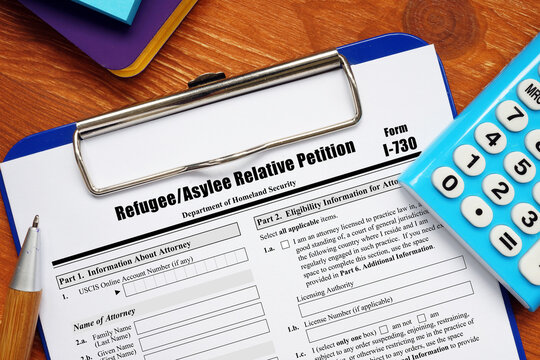
Form I-730 is a petition that must be submitted to the U.S. Citizenship and Immigration Services (USCIS). This form contains several parts, including Part I, which provides information about the petitioner and beneficiary. It also includes signatures verifying the truthfulness of the information provided. It is a good idea to have at least one person other than the petitioner and beneficiary sign the form.
When filling out I 730 Form, you should provide all supporting documents for the claims that you make. The documents must be valid proof of your claimed family relationship. Although USCIS is unlikely to recognize an informal marriage, it will generally recognize that you married someone based on the fact that you were fleeing persecution or a country with restrictive laws.
The form also asks for personal information, including your Social Security number and alien registration number. You should also include your date of birth, gender, and country of birth. If you are unsure, you can consult your birth certificate. If you do not have a birth certificate, you may want to hire a lawyer or representative to help you with this application.
You should not forget to include photos of the child. This document is important if the child has been adopted before the age of 16. If the child is a stepchild, the petitioner should include documentation confirming that he or she was younger than 18 when they married. Your attorney will be able to confirm whether your child is eligible for CSPA.
If your family member does not speak English fluently, it is important to hire an interpreter. The interpreter must be over eighteen years of age and be an English-speaking citizen. If the applicant does not have the necessary language skills, bring someone with you who can translate the documents for them.
When filing for asylum, refugees and asylees should have documentation that they face persecution in their home country. Oftentimes, this persecution is related to race, religion, societal group, and political stance. Immigration attorneys can help you with the process. You will also need to be legally eligible to claim asylum.
If you are a refugee, you may also be able to request that your family member be processed for refugee status. However, the rules for these requests vary from year to year. The primary requirement is that the family member must have a well-founded fear of persecution in the country of origin.
Besides the application itself, Form I-730 contains a set of questions that applicants must answer on page 3. These questions relate to inadmissibility grounds under the INA "212". However, not all inadmissibility grounds apply to all applicants, and most grounds can be waived if the Attorney General agrees. This is why it is important to thoroughly answer the questions and make sure you have the appropriate documents to support your waiver application.
Asylees who wish to immigrate to the U.S. must fill out Form I-730 to be eligible for the anchor relatives program. This program is only available to members of certain religious minorities in the former Soviet Union. The anchor may file on behalf of a spouse, child, sibling, or grandparent.



